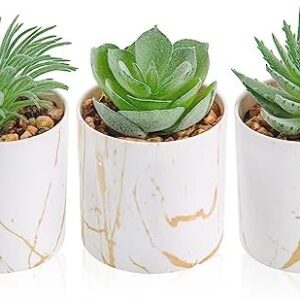As humans, we often underestimate the power of plants and the positive impact they can have on our environment. Sure, we all know that plants provide us with oxygen, food, and beauty, but their role in sustainability and environmental conservation goes much deeper than that. Sustainable gardening, in particular, is a practice that harnesses the power of plants to promote a healthy ecosystem, reduce our carbon footprint, and protect biodiversity.
So, how exactly does sustainable gardening work, and why is it so important for the environment? Let’s dive in and explore the wonderful world of plants and their impact on our planet.
First and foremost, sustainable gardening is all about working with nature rather than against it. Instead of relying on harmful chemicals and pesticides, sustainable gardeners opt for organic and natural methods to control pests and diseases. By avoiding synthetic fertilizers and harmful chemicals, we can prevent soil contamination and protect the health of pollinators like bees and butterflies.
Moreover, sustainable gardening practices such as composting, mulching, and water conservation help to enrich the soil and promote biodiversity. Composting, for example, is a simple yet effective way to recycle organic waste and create nutrient-rich soil for plants to thrive. Mulching, on the other hand, helps to retain moisture, suppress weeds, and regulate soil temperature, reducing the need for excessive watering and synthetic fertilizers.
By using water-saving techniques like drip irrigation and rainwater harvesting, sustainable gardeners can reduce their water consumption and minimize runoff, which can carry pollutants and chemicals into rivers and streams. In fact, by conserving water in the garden, we can help to alleviate water scarcity and protect aquatic ecosystems.
But the benefits of sustainable gardening go beyond just the garden itself. By creating green spaces and planting native species, we can help to combat climate change and mitigate its effects. Trees and plants act as natural carbon sinks, absorbing carbon dioxide from the atmosphere and storing it in their biomass and roots. This not only helps to reduce greenhouse gas emissions but also improves air quality and mitigates the urban heat island effect.
In addition, planting native species in our gardens can provide habitat and food for local wildlife, promoting biodiversity and ecosystem resilience. Native plants are adapted to the local climate and soil conditions, making them better suited to survive and thrive in their natural environment. By choosing native species over exotic or invasive plants, we can help to preserve and protect our native flora and fauna.
Furthermore, sustainable gardening can also have a positive impact on our mental and physical well-being. Spending time in nature and caring for plants has been shown to reduce stress, anxiety, and depression, while also promoting physical activity and overall health. Gardening can be a therapeutic and meditative practice, allowing us to connect with nature and cultivate a sense of peace and mindfulness.
So, how can you get started with sustainable gardening and harness the power of plants to positively impact the environment? Here are a few simple tips to help you create a more eco-friendly garden:
1. Start by assessing your garden’s needs and resources, such as sunlight, soil type, and water availability. Choose plants that are well-suited to your climate and growing conditions, and focus on native species that require less water and maintenance.
2. Avoid using synthetic fertilizers, pesticides, and herbicides, which can harm beneficial insects, pollinators, and soil microbes. Instead, opt for natural and organic solutions like compost, mulch, and companion planting to control pests and promote plant health.
3. Conserve water by using water-saving techniques like drip irrigation, rain barrels, and xeriscaping. Mulch around plants to retain moisture and reduce evaporation, and water early in the morning or late in the evening to minimize water loss to evaporation.
4. Support pollinators like bees, butterflies, and birds by planting a variety of flowering plants and providing shelter and nesting sites. Avoid using pesticides that can harm pollinators and choose organic and bee-friendly plants to create a pollinator-friendly garden.
5. Recycle and reuse materials in the garden, such as plant pots, containers, and garden waste. Compost organic matter like kitchen scraps, leaves, and grass clippings to create nutrient-rich soil for your plants.
By adopting sustainable gardening practices and harnessing the power of plants, we can make a positive impact on the environment and create a more sustainable and resilient world for future generations. So, roll up your sleeves, dig in the dirt, and let the power of plants transform your garden and the world around you.






